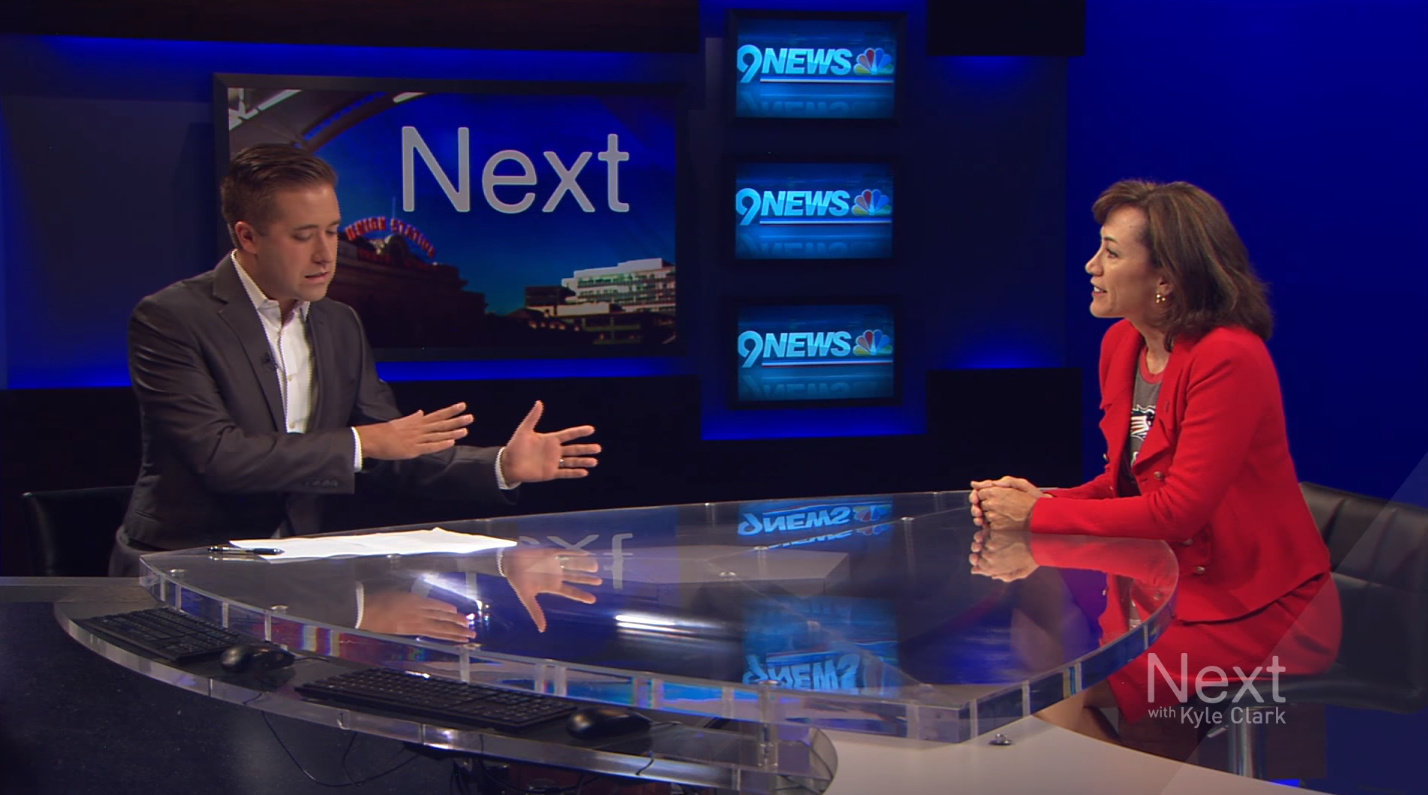The future of 17,000 Coloradans lies in uncertainty as DACA comes to an end. Hundreds of those Dreamers attend Metropolitan State University right here in Denver.
MSU's new president is Janine Davidson, who once served as the 32nd undersecretary of the United States Navy. Davidson recently wrote a letter to President Trump expressing that the school is committed to helping students who benefit from DACA.
She sat down for an interview with Next with Kyle Clark to talk about how President Trump's choice to end DACA is impacting students:
Q: Has the Trump administration's decision to end DACA or Colorado's decision to join the lawsuit against that...has it changed the way you guys operate?
A: Yeah, absolutely.
Q: How so?
A: Well, our students are incredibly anxious. They don't know what the future holds. We have an array of services that we offer to our students from counseling to legal and everything else. It's just generated a massive amount of anxiety across our campus.
Q: What can the school practically do?
A: We've done a lot of things already. We've held a panel for information for students a couple days ago and we had the counseling service in there. We had the immigration services in there. We had our general council, we had our police chief. We had other student organizations, we had professors...and all of these people, offer their support to students. The counselors will say some of these students are basically suffering the equivalent of a PTSD response. They feel helpless, they don't know what their future is, they don't know where to turn...and so we're really trying to provide that kind of support for them on the emotional front.
Q: How many students are we talking about?
A: We don't have the exact numbers because we don't keep perfect records but we estimate we have about 300, which is a huge number.
WATCH our full interview with Janine Davidson:
Q: Do you not keep the records because then if they ask, you have nothing to give them- meaning the feds?
A: It helps. We can't keep those kinds of records.
Q: There are students who have DACA status, who have legal status but were brought here illegally. But then there are other students who don't have legal status in the country, but they are also attending. Do you foresee a situation in which the school actively gets involved in students' legal defenses and legal situations?
A: I think every student has a unique situation. We do have in our immigration services, because of visa requirements, we have some legal support. We have clinics in there every two weeks In that respect, we offer legal advice but we're not in any lawsuit if that's what you mean.
Q: Immigration agents are supposed to treat schools the way that they treat churches- as places that for the most part are off limits for immigration enforcement actions. Churches have decided to become actual physical sanctuaries for people who are avoiding deportation. Could you envision a scenario in which MSU does the same?
A: There's been a lot of talk about this and we've thought a lot about this, but legally, the word sanctuary doesn't really mean anything. Already by law, we are not required to give any sort of information over to the federal agents if they were to come on campus without a warrant. That was one of the reasons we had the police chief there and the legal council the other day because they would say straight up we already have these kinds of protections. To label yourself as a sanctuary, it doesn't mean anything more than what we're already sort of doing.
Q: But what about the physical sanctuary that churches provide? Could you imagine your school doing the same or is that not your role?
A: Well, if the churches are just saying they can just bolt the door, that's one thing. A campus can't bolt a door. We cannot physically keep people off of our campus.
Q: Could you envision a situation where the university loses federal funding over its stand and would that be something you would be comfortable with?
A: Of course I would not be comfortable with losing federal funding. I think that would be a terrible outcome, and we hope that doesn't happen.
Q: Is that an outcome you're preparing for?
A: People are talking about that...I can't imagine that would happen.
Q: Do you feel like there is intellectual space on your campus for students and for faculty members who agree with the Trump administration on immigration?
A: We promote free speech on our campus. People can debate if they wish to. We haven't really had that. I think there's just a lot of compassion for these individual students that find themselves in this predicament.
Q: You don't see that as a deficit, that there aren't wildly differing views on immigration on your campus or among your faculty?
A: Well, there may be wildly differing views. I just think people are being respectful. We haven't had outpouring against these students.
Q: Will there be room for that kind of debate you think?
A: There's always room for debate on a college campus. That's why we're here.
Q: Let's talk about free speech. The idea of white nationalism/white supremacy has gotten a lot of talk lately. What would happen if a white nationalist group wanted to hold an event on your campus?
A: By law, if anybody wants to hold an event on our campus, they can book the space. They would have to get someone to sponsor them to come onto the campus. We would cross that bridge if we came to it. We would assume they would be abiding by the law and they would have a peaceful engagement and we would treat them like other groups.
Q: So many of our political conversations now happen in a bubble. You go to a college campus, you've got a bunch of people who agree about immigration talking about immigration. You've got conservation communities, got a bunch of people who will agree on immigration talking to each other. How do we break pass that?
A: I think again free speech...forums on campus, the media can help by bringing people with differing views. I think you're right, I think it's a bigger trend. It's not just associated with immigration. People that agree with each other are talking to themselves on both sides and the information flow is starting to get a lot more stilted.


